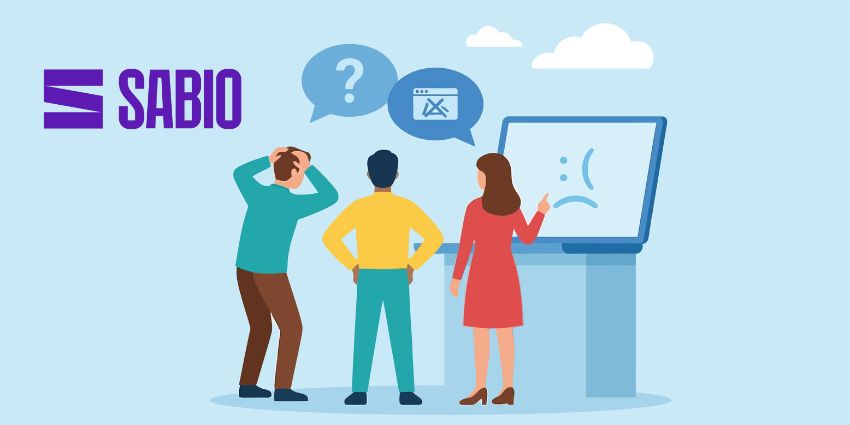Sanas filed a lawsuit against Krisp, claiming the company created a “copycat” version of its Sanas AI Accent Translation technology.
In the lawsuit, Sanas takes aim at the Krisp AI Accent Conversion solution released in April 2025, noting:
The similarity is not random chance. Krisp did not come up with what it claims is its own, “new” accent translation software—Krisp stole it from Sanas.
As the names of both solutions suggest, the AI technology, which this case revolves around, involves altering accents in real-time.
As of 2024, Sanas worked with 12 of the top 20 customer service BPOs, deploying its software amongst their global contact center agent populations.
Yet, despite launching little more than three months ago, Krisp has already scooped one of Sanas’ biggest customers: Everise, which employs 28k+ agents.
Given Krisp’s market penetration with background noise removal technology, it could attract many more big customers.
However, amid this rising competition, Sanas is claiming foul play.
What Does the Lawsuit Allege? The Breakdown
The case starts in September 2021, when Robert Schoenfield, EVP at Krisp, reached out to Shawn Zhang, co-founder of Sanas, to explore licencing Sanas’ tech.
Screenshots of this conversation are available inside the lawsuit.
Two months later, Sanas supposedly conducted a product demo of its AI accent translation technology with Krisp’s leadership, which was subject to a non-disclosure agreement (NDA).
The filing then claims that throughout 2022, the two firms held discussions to explore a collaboration in which Krisp would license Sanas’ AI accent translation technology, continuing under the NDA.
It also alleges that: “One thing was clear: at the time, Krisp did not have any accent translation capabilities of its own.”
In June of that year, Krisp purportedly requested a more technical evaluation, where it could test several aspects of the solution. That included tests of its performance in different acoustic settings, hardware requirements (CPU, memory, and disc), and compatibility with Krisp’s technology.
The filing indicates the two firms even agreed to set up a Slack channel as a “forum for the technical exchange of information.”
In August, Schoenfield allegedly then emailed that Krisp would like to proceed with the partnership, before sending another series of detailed technical questions, which Sanas claims it answered.
The next month, the two firms are said to have discussed integrating their systems. However, the filing notes, “At the end of October 2022, Krisp went cold.”
By November, Schoenfield reportedly emailed Sanas’ leadership to formally end the conversations, asserting that Krisp was not yet ready to pursue agent translation technology.
Yet, in April 2023, the company released a blog entitled: “Krisp AI Accent Conversion: Get Ready for a Communication Revolution,” and – as of Spring 2025 – has started selling a competitive product.
Those moves appear to have sparked this lawsuit, through which Sanas claims Krisp:
- Infringed on four of Sanas’ issued US patents
- Misappropriated Sanas’ trade secrets in violation of the US Defend Trade Secrets Act
- Failed to disclose to the US Patent Office that two of its patents were based on information disclosed by Sanas
On the latter, Sanas is chasing a legal declaration that it is the co-inventor and co-owner of Krisp’s two patents.
The Sanas Perspective
In a press release, Sharath Keshava Narayanam, CEO of Sanas, shared the following statement: “From its earliest roots in a project by Stanford engineering students to help solve the frustrations faced by one of their classmates, Sanas has been devoted to helping people communicate more easily.
“We are proud that our technologies have helped thousands of professionals enter the workplace and overcome discrimination based on accent. That success has been built on the innovation and hard work of our incredibly talented team.
Through this lawsuit, we are standing up for them and for innovators everywhere, and for the integrity of the market that has come to depend on Sanas’ technologies.
The Krisp Perspective
Krisp is currently unwilling to share its perspective on the lawsuit. A spokesperson told CX Today:
“We are aware of the lawsuit filed by Sanas and are currently reviewing the matter. We take such issues seriously and will respond through the appropriate channels.
As this is an ongoing legal matter, we are unable to provide further comment at this time.
AI Accent Technology: The Contact Center’s Latest Craze
As noted, AI accent “translation” or “smoothing” technologies neutralize accents of contact center agents interacting with customers from across the globe.
The technology is already commonplace across India and the Philippines, yet it is starting to drift into Africa and Latin America, too.
According to Sanas, its software has improved first call resolution (FCR), customer satisfaction (CSAT), and sales conversion rates by up to 15, 20, and 17 percent, respectively.
Most notably, BPOs have cut agent attrition by as much as 50 percent.
Yet, the technology has faced some pushback from people accusing the innovation of playing into racism. Indeed, Teleperformance received flak from some corners after announcing its partnership with Sanas earlier this year.
Nevertheless, its implementation is running full steam ahead, as the technology grows in prominence and adjacent technologies, like real-time language translation, rise.
Indeed, a fully-fledged contact center voice AI stack is emerging, with Krisp and Sanas fighting to become the go-to providers.







